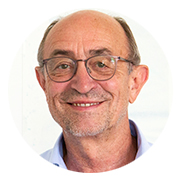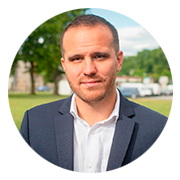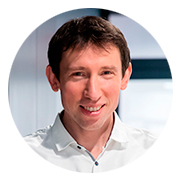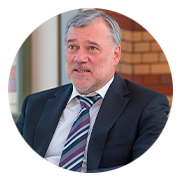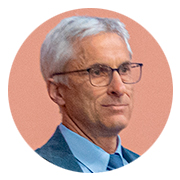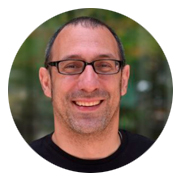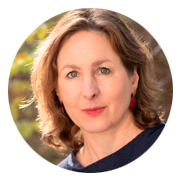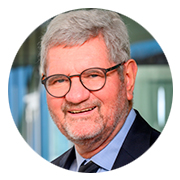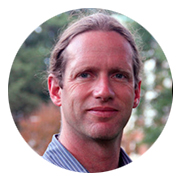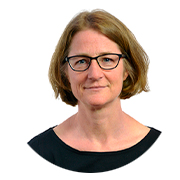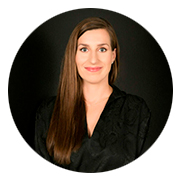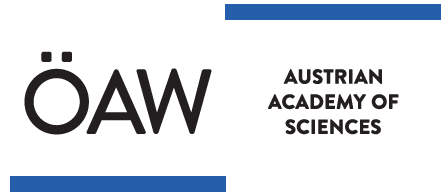
Complex Systems: Shaping the Future for a Resilient Society
Austrian Academy of Sciences, ÖAW
Vienna, Austria, September 29, 2025
–
CLOSING SESSION REMARKS
Eloy Álvarez Pelegry
First, I would like to congratulate the organizers and the Austrian Academy of Sciences, as well as speakers and moderators, for their contributions to this Euro-CASE Annual Conference.
In this closing session, I shall make some remarks, most of them personal. The Conference have addressed how to shape a resilient society and in one of the presentations resiliency was defined as the “ability of a system to absorb shocks, adapt and transform, while continue functioning”.
I found the conference very interesting and challenging, putting the focus on complex systems and resilience. In this context a variety of issues were addressed, among others health, societal change processes, policy making, energy, the role of soil in energy transition, the world energy transition, water cycle, climate prediction, and multilateral environmental diplomacy. Given the scope of the conference and the topics covered, I believe, that we have appreciated the complex nature of human systems and processes.
I followed the sessions, presentations and debates with growing interest and mainly form the point of view of an engineer.
Engineering and technology were, in my view, the basis, explicitly or implicitly, in most of the presentations. For me were evident in health, soils, energy transitions and storage.
Quite a few disciplines or branches in engineering were covered. For example, information systems, science computing, agriculture, various types of energy technologies, chemical engineering, hydrology; as well as those sciences that are fundamental to different engineering areas.
I understand that a valuable approach to today ‘sessions is the engineering CDIO approach. That is Conceive, Design, Implement and Operate, as this approach may also be applicable to complex systems.
My perceptions are that there is a reasonable hope that complex systems have solutions and that engineering and technology play a key role contributing to solutions. Furthermore, as engineers we are educated to look for different disciplines to solve problems.
As I said at the beginning of this conference, Euro-CASE has the advantage of gathering 23 academies of engineering, technology, and applied sciences across Europe. So, we have access to a very substantial number of fellows and experts, in almost all areas of engineering and technology.
For sure the number of issues that this Conference have addressed and the knowledge and insights that we have got, are going to give us food for thinking and for examining potential studies or projects at Euro-CASE.
To finalize I would like to welcome the next Annual Conference organized by the Irish Academy of Engineering and the Royal Academy of Engineering of UK, and to convey my sincere thanks to both organizers.
To conclude, I would like to reiterate our gratitude to the Austrian Academy of Sciences for organizing, in collaboration with the Euro-CASE staff, this outstanding Conference.
Thank you very much for your attention.
Photos: ©OeAW, Daniel Hinterramskogler
Opening session
•1/ Heinz Fassmann | President of the Austrian Academy of Sciences
•2/ Eloy Alvarez Pelegry | Euro-CASE Chair
•3/ Dimitra Simeonidou | member of the group of Chief Scientific Advisors at Scientific Advice Mechanism (SAM) of the European Commission
•4/ Günter Blöschl | Conference Chair, Austrian Academy of Sciences
Session HEALTH
•5/ Andreas Bergthaler | Academy of Sciences and Medical University of Vienna
•6/ Stefan Thurner | Complexity Science Hub Vienna and Medical University of Vienna, Austria
•7/ Al Ozonoff | Broad Institute of MIT and Harvard, USA
•8/ Maja Schlüter | Stockholm University, Sweden
•9/ Barbara Prainsack | University of Vienna, Austria
Session ENERGY
•10/ Georg Brasseur | Graz University of Technology
•11/ Reinhard Hüttl | EEI Eco-Environment Innovation and acatech – National Academy of Science and Engineering, Germany
•12/ Robert Schlögl | Alexander von Humboldt Foundation, Germany
•13/ Stefan Freunberger | ISTA – Institute of Science and Technology Austria
•14/ Louis de Fontenelle | Université de Pau et des Pays de l‘Adour, France
Session ENVIRONMENT
•15/ Iris Eisenberger | University of Vienna
•16/ Alberto Montanai | University of Bologna and ITATEC – Italian Academy of Engineering and Technology, Italy
•17/ Jürgen Kurths | PIK – Potsdam Institute for Climate Impact Research and Humboldt University, Germany
•18/ Sean Downey | The Ohio State University, USA
•19/ Alice Vadrot | University of Vienna, Austria
Closing session
•20/ Günter Blöschl | Conference Chair, Austrian Academy of Sciences
•21/ Tom Leahy, Sean Finlay and Sane McHugh | The Irish Academy of Engineering (Ireland) and The Royal Academy of Engineering (UK), Co-Hosts of the 2026 Euro-CASE Annual Conference
•22/ Eloy Alvarez Pelegry | Euro-CASE Chair
The 2025 Euro-CASE Annual Conference
Summary
CONFERENCE GOAL
Real-world systems – whether environmental, societal or technological – are inherently complex. They involve nonlinear interactions, feedback loops, delays, and emergent behaviors that challenge traditional, siloed approaches. Our goal is to explore how we can better understand and manage these systems to increase societal resilience.
ADDRESS TODAY’S MOST PRESSING CHALLENGES
From climate instability to healthcare system shocks and energy transitions – modern problems are deeply interconnected. This symposium tackles these challenges through the lens of complex systems, offering new ways to understand and act on them.
THINK BEYOND THE SILOS
Complex problems don’t fit neatly into disciplines. This event brings together voices from science, engineering, policy and society to build cross-disciplinary insights and solutions, encouraging new connections that mirror the interwoven nature of the challenges we face.
EXPLORE HIGH-LEVEL, ACTIONABLE IDEAS
We’re not just dissecting problems – we’re imagining bold, conceptual strategies that can lead to real-world impact. Expect big-picture thinking grounded in practical applications.
BUILD A MORE RESILIENT FUTURE
Learn how resilience can be designed into systems – from ecosystems to infrastructure – and how that mindset can help society adapt and thrive amidst uncertainty.
CONNECT, COLLABORATE AND INNOVATE
Meet leading thinkers, practitioners and change-makers. This is a unique opportunity to form meaningful partnerships and spark innovative projects that extend well beyond the symposium.
PROGRAMME
08:00
Registration
08:30
Welcome Coffee
09:00
Welcome
- Heinz Fassmann | President of the Austrian Academy of Sciences
- Eloy Alvarez Pelegry | Euro-CASE Chair
- Dimitra Simeonidou | member of the group of Chief Scientific Advisors at Scientific Advice Mechanism (SAM) of the European Commission
Complex Systems for Policy and Resilience: Insights from Telecoms infrastructure as a Planetary-Scale Sensor of Complexity LINK - Günter Blöschl | Conference Chair, Austrian Academy of Sciences
09:30
PANEL ON HEALTH
presentations of 15 minutes each
Moderator: Andreas Bergthaler | Centre for Molecular Medicine of the Austrian
Academy of Sciences and Medical University of Vienna
- Stefan Thurner | Complexity Science Hub Vienna and Medical University of Vienna, Austria
Health care – a complex system LINK - Al Ozonoff | Broad Institute of MIT and Harvard, USA
Decentralizing predictive epidemiology: From local practice to global foresight LINK - Maja Schlüter | Stockholm University, Sweden
Making sense of messy societal change processes – implications of complexities for theorizing and action LINK - Barbara Prainsack | University of Vienna, Austria
The power of ‘gardening‘: Cultivating resilience in policy making LINK
11:30
LUNCH
12:45
PANEL ON ENERGY
presentations of 15 minutes each
Moderator: Georg Brasseur, Graz University of Technology
- Reinhard Hüttl | EEI Eco-Environment Innovation and acatech – National Academy of Science and Engineering, Germany
Soils, climate change and renewable energy LINK - Robert Schlögl | Alexander von Humboldt Foundation, Germany
Energy: A Real-World System in Transition LINK - Stefan Freunberger | ISTA – Institute of Science and Technology Austria
Electrochemical Energy Storage in the Energy Transition LINK - Louis de Fontenelle | Université de Pau et des Pays de l‘Adour, France
Law, Complexity and Energy Transitions: Building Resilient Pathways for the Future LINK
14:45
COFFEE BREAK
15:30
PANEL ON ENVIRONMENT
presentations of 15 minutes each
Moderator: Iris Eisenberger, University of Vienna
- Alberto Montanari | University of Bologna and ITATEC – Italian Academy of Engineering and Technology, Italy
Is complexity the reason for limited predictability of environmental extremes? LINK - Jürgen Kurths | PIK – Potsdam Institute for Climate Impact Research and Humboldt University, Germany
Climate Meets Complex Systems: Exploring Teleconnections in the Climate System via a Complex Network Approach LINK - Sean Downey | The Ohio State University, USA
Adaptive self-organization in swidden agriculture LINK - Alice Vadrot | University of Vienna, Austria
Negotiating complexity: the future of science in multilateral environmental diplomacy LINK
17:30
Closing
- Günter Blöschl | Conference Chair, Austrian Academy of Sciences
- Tom Leahy and Tim Chapman | The Irish Academy of Engineering (Ireland) and The Royal Academy of Engineering (UK), Co-Hosts of the 2026 Euro-CASE Annual Conference
- Eloy Alvarez Pelegry | Euro-CASE Chair
18:00
Cocktail Reception
SPEAKERS
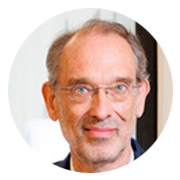
Heinz Fassmann
President of the Austrian Academy of Sciences
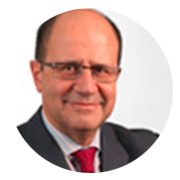
Eloy Alvarez Pelegry
Euro-CASE Chair
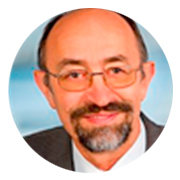
Günter Blöschl
Conference Chair, Austrian Academy of Sciences
–




